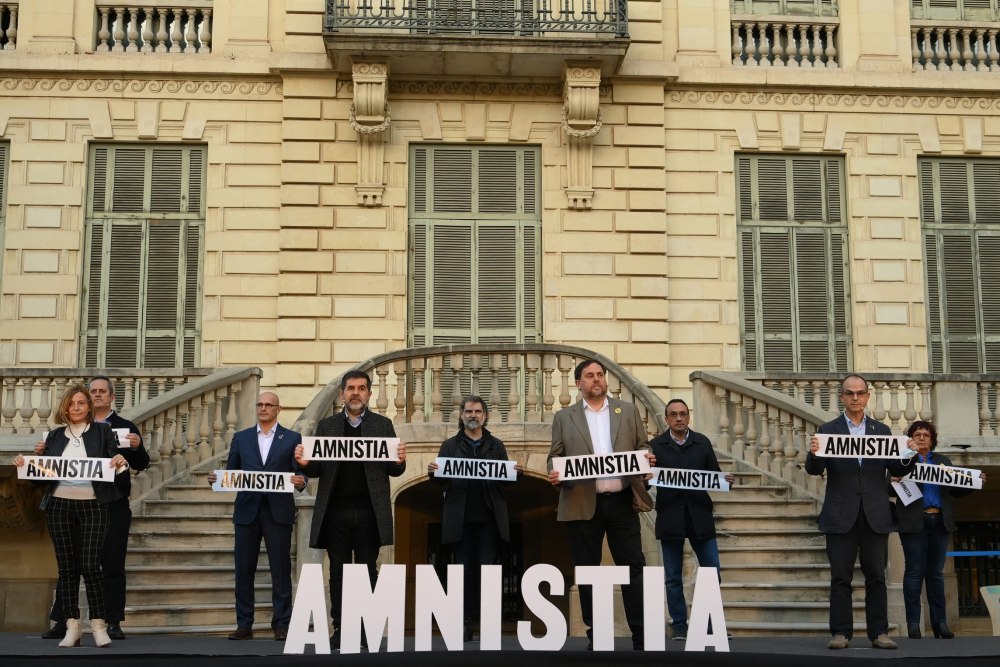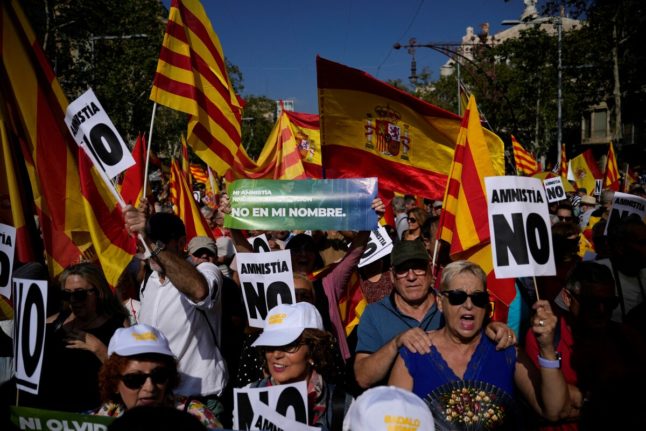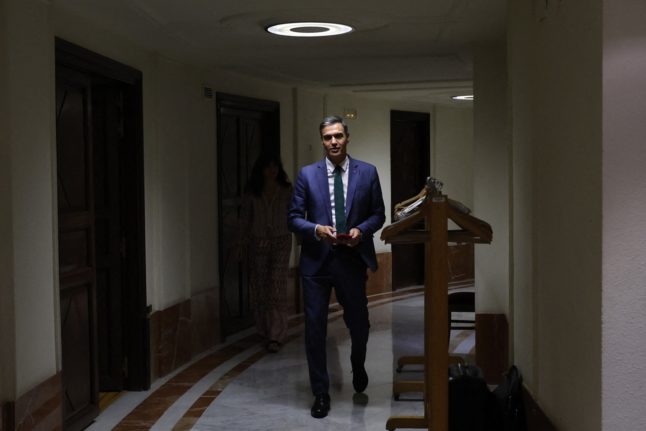Spain’s snap general election in July failed to produce a governable majority for either the Spanish left or right. Though political pundits and polling data had forecast a sweeping majority for the centre-right Partido Popular (PP), acting Prime Minister Pedro Sánchez’s Socialists (PSOE) surprised Spain and forced a political stalemate.
Then the political horse trading began, with each side seeking the votes for an absolute majority in Spain’s Congress of Deputies. PP leader Alberto Núñez Feijóo failed to do this, losing his investiture vote in late-September, because many smaller parties refused to support his bid for government if it meant potentially allowing the far-right into Spain’s government.
Now is the turn of Sánchez and the Socialists. He has a more realistic chance of getting to 178 and governing again. Though the Spanish left didn’t win as many votes as the right in absolute terms, it has more room for political manoeuvring and potential coalition partners. One is Sumar, the far-left collection of parties led by Labour Minister Yolanda Díaz Pérez that absorbed Podemos, the junior coalition partner in the last government.
READ ALSO: At Barcelona rally, Spanish right lambasts amnesty plan
But that won’t be enough to reach 178. So who does Sánchez turn to? Separatist forces in Catalonian politics – more specifically, Esquerra Republicana de Catalunya (ERC) and Junts per Catalunya, led by Carles Puigdemont, leader of the failed 2017 independence bid who has been living in self-imposed exile in Belgium for fear of arrest ever since.
Their main demand in return for backing a Sánchez government? An amnesty on the leaders of that failed bid.
What is an amnesty?
In simple terms, an amnesty is an act granted by an authority, usually a government, that involves the forgiveness and bypassing or wavering of punishment of people who have committed crimes. However, political amnesties are not clearly outlined in the Spanish Constitution, so the proposed amnesty for Catalan separatist leaders is, along with being incredibly controversial, also legally ambiguous.
Some legal experts argue it could be constitutional, depending on the text and circumstances, while others suggest it would be equivalent to a general pardon, something that is prohibited.
A pardon is the total or partial forgiveness of an individual sentence, although the person in question is not pardoned for their status as a convicted person, so would therefore be a repeat offender in the event of committing new crimes. This differs from an amnesty, which in effect implements a broader ‘legal forgetfulness’ for both the crimes and the responsibility of their perpetrators.
Essentially, in return for supporting the Sánchez government, Junts and ERC are demanding a political amnesty for the leaders of the failed referendum bid in 2017. But this wouldn’t just be for the political leaders. According to reports in the Spanish press in recent weeks, the proposed amnesty could include as many as 1,500 people who were involved, many of whom are in jail or have charges outstanding against them.
Why it’s controversial
This is an incendiary topic in Spain, and has proven increasingly controversial as investiture negotiations rumble on. Over the weekend, tens of thousands took to the streets in Barcelona to protest against the hypothetical amnesty.
According to a poll cited by Reuters, almost 70 percent of respondents polled recently said they were against an amnesty. Interestingly, this is not a binary left-right issue: 59 percent of PSOE voters said the same.
Speaking at the event, PP leader Feijóo painted the proposed amnesty as anti-democratic and Sánchez’s deal making as cynical transactionalism: “We stand with democracy – and anything that amounts to a reactionary decision needs to be condemned by all democrats,” he said. “Catalonia isn’t a business or a society where the law isn’t respected, and the office of Prime Minister cannot be sold or traded.”
For many Spaniards, Sánchez’s courting of Catalonian separatists is further evidence of his willingness to do whatever it takes to remain in power, and his dependence on radical, minority forces in Spanish politics. His PSOE government was in coalition with the far-left and relied on the support not only of Catalan but also Basque separatist parties to pass his legislation. Most controversially, EH Bildu, the political wing of now defunct Basque terror group ETA, something that was a strong theme on the summer campaign trail.
READ ALSO: Spain’s king asks Sánchez to try to form government

What does it mean for Spanish politics?
In the short-term, an amnesty means the Sánchez government is more likely to govern again. If acceptable terms are offered to Junts and ERC, they will likely support his investiture bid and vote him back into La Moncloa. PSOE sources suggest any amnesty could be conditional on Junts dropping referendum demands.
Sánchez was formally invited by Felipe VI to try and form a government last week, and details of any amnesty are still yet to be finalised.
As El Mundo has reported, a legal fudge may be found to try and soften some of the incendiary political baggage carried by a formal amnesty: “PSOE and ERC are already working on a text that would eliminate the criminal responsibility of those who took part in what happened in the fall of 2017 in Catalonia, but avoiding calling it amnesty.” This seems a likely outcome.
For Sánchez and many on the Spanish left, an amnesty represents not only a route to reelection but the continuation of what they perceive to be the ‘normalisation’ of relations with Catalonia. Rather than inflaming tensions with separatists or worsening the Catalonia question, as the Spanish right suggest, Sánchez argues the opposite: that doing so would soften the issue and make conflict more unlikely.
“I will be consistent with the policy of normalisation and stabilisation of the political situation in Catalonia,” Sánchez told journalists in New York last week, referring to previous steps taken to normalise relations between Catalonian separatists and La Moncloa. In 2021, he granted pardons to nine independence leaders. The government also reformed sedition and embezzlement legislation. Many now view an amnesty as the next logical step on this road to normalisation.
READ ALSO: Spain’s PM wants to update sedition law to ‘defuse’ tensions with Catalonia
In the medium to long-term, an amnesty for Catalan separatists would cause uproar on the Spanish right and could have a galvanising effect on the populist right. Vox, some of the staunchest opponents of any amnesty or normalisation process, first rose to power in response to separatist forces in the mid-2010s. An amnesty may provide the far-right party with political momentum after underperforming in the general elections.
Similarly, for the PP, an amnesty (and thus the reelection of Sánchez) likely means the end of Feijóo’s party leadership. Viewed by many as missing something of an open goal in July’s general election, if an amnesty further polarises Spanish politics, which it seems likely to, Feijóo may well be cast aside for a more populist leader. Madrid regional President Isabel Ayuso, an outspoken critic of an amnesty who has accused Sánchez of leading Spain down “a dead end and in a tyrannical way,” seems a likely successor.
Of course, none of this may happen. The PSOE may not reach a deal with Junts and ERC and Sánchez could fail in his investiture vote. He has until November 27th to finish negotiations and go to the Congress – if he fails, Spain will have another general election, likely sometime in the New Year.



 Please whitelist us to continue reading.
Please whitelist us to continue reading.
Member comments